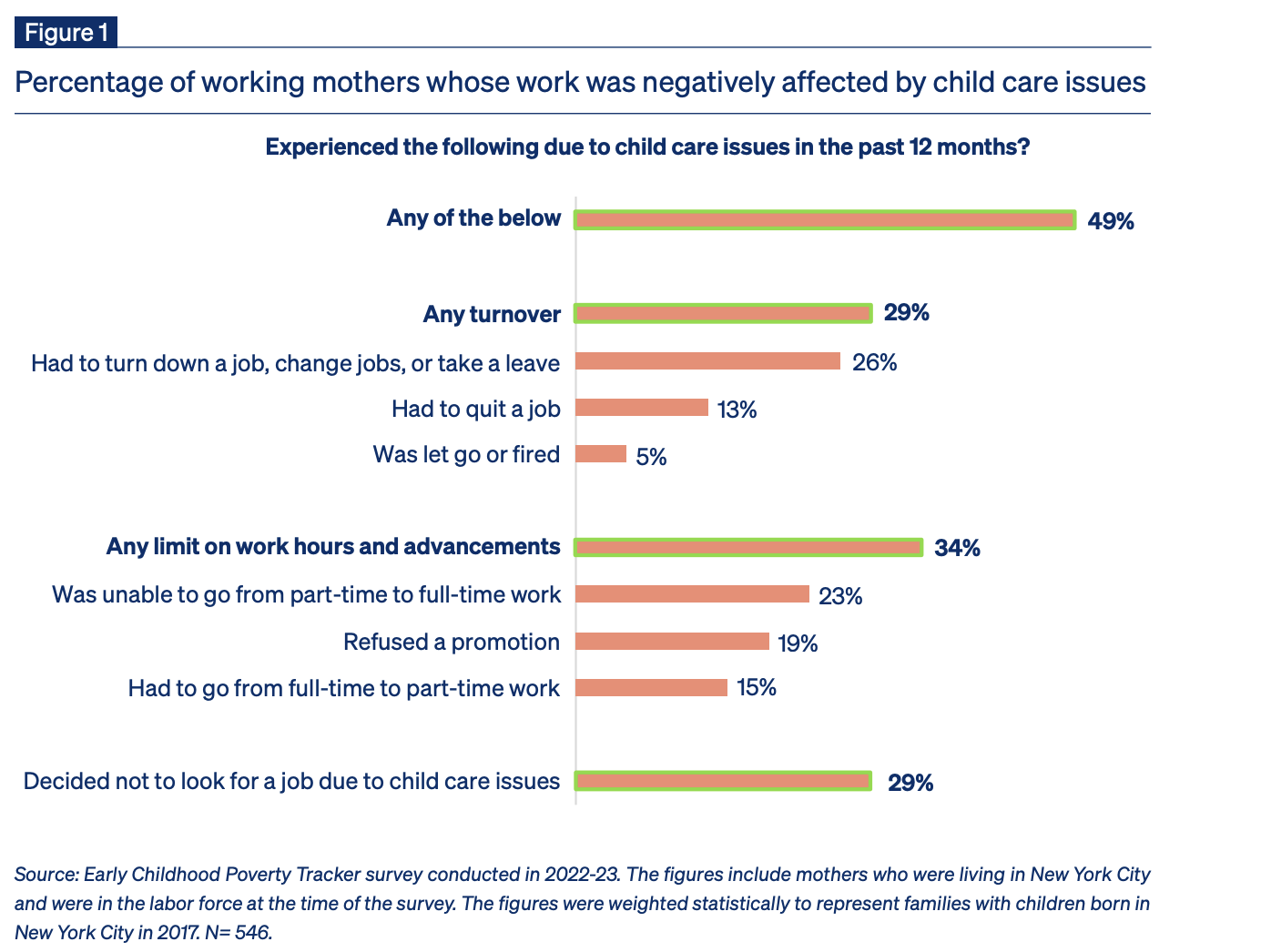September 2024
Spotlight on: Child Care-Related Work Disruption in the Early Childhood Poverty Tracker
The lack of reliable, affordable child care presents economic setbacks for working mothers
Contributors: Eunho Cha, Jeanne Brooks-Gunn, Kathryn Neckerman, and Jane Waldfogel
Issues Areas: Early Childhood, Education, Households With Children
In this report, data from the Early Childhood Poverty Tracker provides key insights about childcare in NYC from 2021 to 2023.
The report describes how child care issues affect mothers’ work and families’ economic well-being. This report puts a spotlight on the difficulties that parents face juggling child care and work. We address the following questions:
- How often do mothers face work disruption due to child care issues such as problems accessing or affording reliable child care?
- How prevalent are child care-related work disruptions across income groups?
- What are the implications of child care-related work disruptions for subsequent employment and economic well-being?
Explore key takeaways below:
Child care disruptions are a major challenge for ECPT working mothers. Among mothers in the labor force with young school-age children in New York City, about 29% of them experienced turnover because of child care issues. This included mothers who had to either turn down a job, change jobs, or take a leave (26%), had to quit a job (13%), or had been fired (5%). In addition, 34% of working mothers chose part-time over full-time work or declined a promotion due to child care issues; 23% could not go from part-time to full-time work, 15% went from full-time to part-time, and 19% refused a promotion. Lastly 29% of mothers decided not to look for a job because of child care problems. Overall, nearly half — 49% of mothers — faced at least one challenge in their work due to child care issues.
49
%
of all working mothers faced disruption to their work life caused by child care issues, in 2022.
30
%
of mothers both below and above the poverty line decided not to look for a job due to child care issues.

The report also finds that mothers whose work had been disrupted by child care issues fared worse economically in the following year. For example, in the Early Childhood Poverty Tracker sample, mothers who suffered a workforce disruption in 2022, were 10 percentage points less likely to be employed a year later than those who had not experienced disruptions (81% vs 91%), and 13 percentage points less likely to work full-time (50% vs 63%).
Since 2022, Robin Hood has invested more than $23 million to expand access to high-quality, affordable, and accessible child care across New York City. Our grantmaking and our Child Care Quality and Innovation Initiative (CCQII) are focused on making New York City an early learning metropolis by strengthening the city’s child care infrastructure, including policies that impact children and their families, and improving direct services for mothers, infants, toddlers, and caregivers.